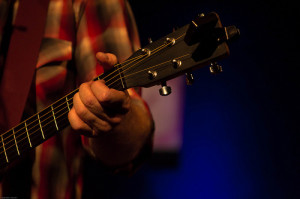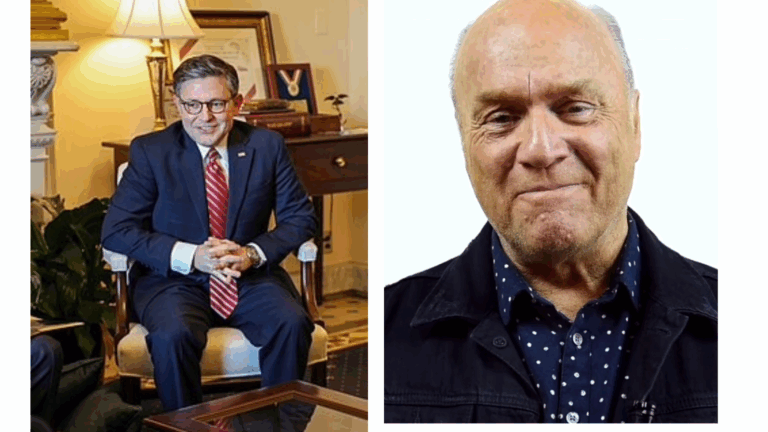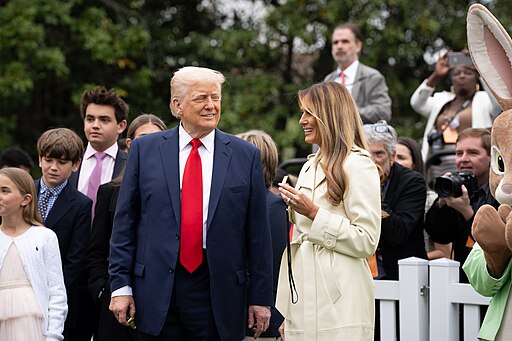
When Was the Day the Music Died?
By Susan D. Harris
I don’t believe a generation gap exists in music now. I believe it’s much more serious than that: that music is largely dead because latter generations have never been exposed to real music.
I have not, with few exceptions, heard any “new” music I liked since the 1990’s. There is, of course, new music coming out that is good — but ironically it’s the new music that mimics sounds from an earlier era that catches my ear. For the most part however, every genre has deteriorated badly in the last twenty years.
Pop music started to seem repetitive. I remember hearing Hootie and the Blowfish for the millionth time and turning off the radio; vowing never to turn it on again.
Country music had just seen its last peak of quality music in the 1990’s; from there it morphed into mainstream pop music that only distinguished itself by using occasional southern drawls or an “ain’t” here and there to give it a faux down-home feel.
What many people began to refer to as “jazz” sounded like chaos to me (akin to a band warming up). Like other genres, the best songs in this category stopped being written about twenty years ago.
The extent of my appreciation of rap music began and ended with Blondie‘s “Rapture” — which I considered an amusing, creative novelty. When rap came along and demanded to be taken seriously, I laughed; surely it wouldn’t catch on with the masses. Speaking words instead of singing them reminded me of Tony Randall on The Tonight Show, reciting lyrics to popular songs to show how silly some of them sounded with no musical attributes.
But rap did make it to the big time. Eventually it expanded to hip-hop and gangsta rap and other subgenres; and young, white men and women with good voices, in an attempt to get noticed, started wasting their talent emulating young black men chanting frustrations of urban ghetto life. I guess it was shocking and exciting at first, a clash of cultures and a rebellion that made old women gasp. When that got old, women had to start taking their clothes off to maintain the spotlight. Rapping/hip hop is so monotonous that artists were forced to become visually shocking to perpetuate sales of their substandard product.
The main draw of hip-hop music is not the music itself, because it does not contain melodies (no one walks around humming it); the distinction between songs lies in the lyrics themselves. Today, some of the biggest successes in the hip-hop/rap genre are songs that alternate between real singing and chanting. Every time it’s done it’s lauded for its “uniqueness” or “hypnotic juxtaposition” of genres.
Christian music contains various genres, and is separate from gospel music. You really have to love the Lord to appreciate a lot of Christian music, because the quality of the voices and the simplistic lyrics leave much to be desired — how many times can one sing the line “My God is an awesome God” unless they are caught up in spiritual fervor? The old hymns with deep, meaningful lyrics and soul-stirring melodies have been abandoned in an effort to keep God “cool.”
Then there is metal music: death metal, thrash metal, black metal – pick one – it’s all screaming rubbish that makes AC/DC seem like the Beach Boys.
Opera, it seems, is one genre that has changed very little; not too many new ones are being written. It’s always been a love-it-or-hate-it genre, and I’ve never known anyone personally who sought it out, myself included. However, in a desperate attempt to escape the poor quality music on my radio, I recently sat spellbound for two hours listening to what I later learned was Turandot. The irony was I had always loved Nessun Dorma, but had staunchly spurned the genre that spawned it. Yet something from Turandot spoke to me, before I even realized it contained the aria I cherished. Still, the fact that I resorted to listening to opera speaks volumes about the quality of the music on the radio.
Music stirs something in the soul; the trouble is that for the majority of the population, I don’t think contemporary music is stirring anything good. I used to work with a woman, about 30 years of age, who constantly played Eminem and Marilyn Manson at her desk. I was forced to endure hours of this mindless, screaming noise. In a diplomatic attempt to not offend a coworker, I would even try to find nice things to say when she would ask, “What did you think of that song? Wasn’t it awesome?!” I could never understand how she could be moved by it in any good way. Not surprisingly, I learned she lived a troubled, tumultuous life; her music choices were only a symptom of that.
We all went through our music phases. Somewhere in my basement sits a dusty album I picked up at a garage sale when I was 18 titled, “Never Mind the Bullocks, Here’s the Sex Pistols.” I can only remember that it made me want to jump up and down and scream; likely a release valve for youthful vigor I couldn’t contain and didn’t understand. But I quickly grew out of it and my musical tastes matured. Nobody matures anymore; they are stunted; perpetually stuck in chanting, rhythms, noise or screaming.
It’s no surprise that shows like American Idol rarely use contemporary songs to judge voice quality; because voice quality is rarely a prerequisite for contemporary songs.
The other day I heard Dean Martin‘s version of “La Vie en rose” for the first time. I was in seventh heaven. Perhaps I’m an old soul, but so many songs recorded long before my time make me blissfully happy to be alive when I hear them. Who can sing “Fly Me to the Moon” like Tony Bennett? Who can elevate you to rapture with “Stardust” like Dinah Shore? Where are the likes of Lena Horne‘s sultry rendition of “St. Louis Blues” or Keely Smith‘s clear, crisp “A Foggy Day“?
Contrasting pop or rock and roll music from the 50’s through the 80’s with what is being produced by big labels today is shocking. Bread‘s introductory line, “I found her diary underneath a tree…” would be updated to “I found her panties underneath a tree…” if it were to be considered for mass appeal today.
And where will the next “Rhapsody in Blue” come from? Nowhere, I lament. I seriously doubt there are but a handful of people who have the talent to create such masterpieces — or having it, can find a market for it.
I suppose it’s easy to dismiss me as a snob or a fossil, but I’ve tried to be open-minded, I really have. I’ve painfully endured or wonderfully enjoyed everyone from Ravi Shankar to Béla Fleck, from Keely Smith to the Oak Ridge Boys, from the Rolling Stones to the New York Philharmonic. I’ve parsed out what I liked; what speaks to my soul. I see the effect of music on people and realize we all have different tastes. But do we?
The common thread of music that used to bind us together as a society — back when everyone, regardless of age or color, knew the #1 song in the country — is gone. We have shattered it into shards of broken glass that can never be pieced together. If art reflects life, maybe a few generations of painkillers, antidepressants, weed-sucking and drunken stupors have finally altered our creative genius as a people. Maybe the effect of too many benzodiazepines in the water system is finally being realized on our airwaves.
Music may not be completely dead: The best hope for music today — for all genres — falls into a category called “indie;” short for independent labels with smaller budgets. It seems that’s where artists go when they realize their music is too good to be accepted by the Beyonce/Jay-Z big-money record labels. So when was the day the music died? For many of us it was a long, long time ago. Yet we can still remember how that music used to make us smile.
Online at http://freedomoutpost.com/2014/06/day-music-died/#SgvFx6OOXJvD1yAm.99
ARVE Error: need id and providerARVE Error: need id and provider








Splendid work.Although I probably would have worded it differently I whole heartedly agree! The music died for myself in the early 70’s. The rest has been mindless repetition for people too young to realize what they are hearing has been done more than several times before.There was a tune in early 71 by Don MaClean lamenting when the music died{bye bye Miss American Pie} and such.Received much airplay and even some hippy sounding fellow came out afterward explaining to those on radio what it meant with pauses after each important phrase. When it all was put together it turned out to be summarily about a plane crash killing three musical stars{one of whom was Buddy Holly} I heartily disagreed back then an still maintain that stance.I have always been musically inclined and all I have heard since the early 70’s is repletion of the same old stuff.Synthesisers were used and other music “boxes” that made their own sounds.Also lip synching done by fellows on stage was exposed and would end another groups fraud in 1983.As for myself.to maintain a sense of calm and careful about what I allow into my mind I usually limit my music to Christian or classical Baroque when in my car.The Ipod helps to diversify when I hear something overly done. This was indeed a well thought out and expressed article.Thank you and Brava!!
Thanks Gary! I posted the vid of Don Maclean, along with Ricky Nelson’s famous Garden Party: “You can’t please everyone, so you got to please yourself!” 😉
Susan,
What do you do when you’re correct? I was in the UK when they stopped making music, believing as I do that polyrhythmic tribal expressions is not music; then again, I don’t think Stockhausen is music, either.
The golden age in pop ran for a long time, to my ears… from the 20’s through much of the 70’s. There is a site named accuradio where you can find Dean Martin and other people who can actually sing, unlike the screaming / flat / Mahler-like death warblers of today.
I’m just musing because you hit a spot that has bothered me for a long time – perhaps 25 years… since the music died. Excepting a few composers, I don’t even listen to much formal music composed after 1860. It wasn’t the death of tonality, per se, but the evaporation of musical inspiration that came with the death and transfiguration aspects of the 20th century.
And as art influences life, the music environment of today leads me to believe we are all doomed. Therefore, I have shut it pretty much out of our house and trained my children to show similar disdain. However, getting their attention toward artists as those that dominated the 30’s and 40’s jazz scene is not so easy. They need to have classical music orchestral training as I did, perhaps, to find that appreciation.
Thanks for an excellent article and a glimpse that there is some modicum of musical taste still circulating in this dreary world of global power, warfare, and death. Oh, lest I forget it, if you find the Goodhall series on YouTube, his presentation is right on key and superb in each one that I’ve watched so far.
Cheers…
Great article! As far as “Christian music” today, I’m discouraged also. You’ve got the Getty’s which produce contemporary “hymns”, which for the most part I enjoy…good melody, rich, scriptural lyrics. But beyond them, it’s a very limited pool of resources. I was the song leader at our former Baptist church, we moved to a different city, and have attended seven or eight churches, the majority have praise bands, with the “cool” Christian music…and the one’s that don’t, are full of middle-age, and senior citizens with less numbers it seems. Why are we catering to this trend?..when all music..effects us three ways…physically(calls for bodily motion), emotionally, and spiritually( the most important!), we need Christian leaders to return..”to the old paths”, that appeal properly to all three areas!
Susan, in my opinion you have very articulately described the unfortunate state of the recording industry today. The odd thing about this is that in my experience, your opinion is very mainstream.
Technology has had a major impact on the way we listen to music today, both technically and socially. That common thread that used to bind us together was not due exclusively to the music, but to the delivery system as well. We all heard the same songs on our favorite radio station..then we bought the record. Popular music was sort of a community topic. Today, listening to music has become a private individual activity. The social aspect of everyone listening to the same thing at the same time is gone. Hence the shards of broken glass you refer to.
In my opinion, this technical/social evolution has transferred the influence from the consumer to the promoter. The demand is certainly not being driven by the music listening/purchasing public. Remember “all request radio”? Remember American Bandstand when Dick Clark would ask audience members to rate new releases? The youth of today don’t have the same opportunity to influence the success of new recordings. Instead, it seems that the records are produced, printed and promoted before anyone has ever heard the first note.
So..then, doesn’t that beg the question: Who is making the determination of what should be recorded and promoted, and why?
You don’t suppose there is some old bald guy somewhere saying, “This is what people want to listen to today.”, do you?
I know a group of high school students who proudly declare their genre of choice to be the recordings that were popular between 1955 and 1975. Those records are 50 – 60 years old! That would be like a high school student in 1960 listening to music from 1910!